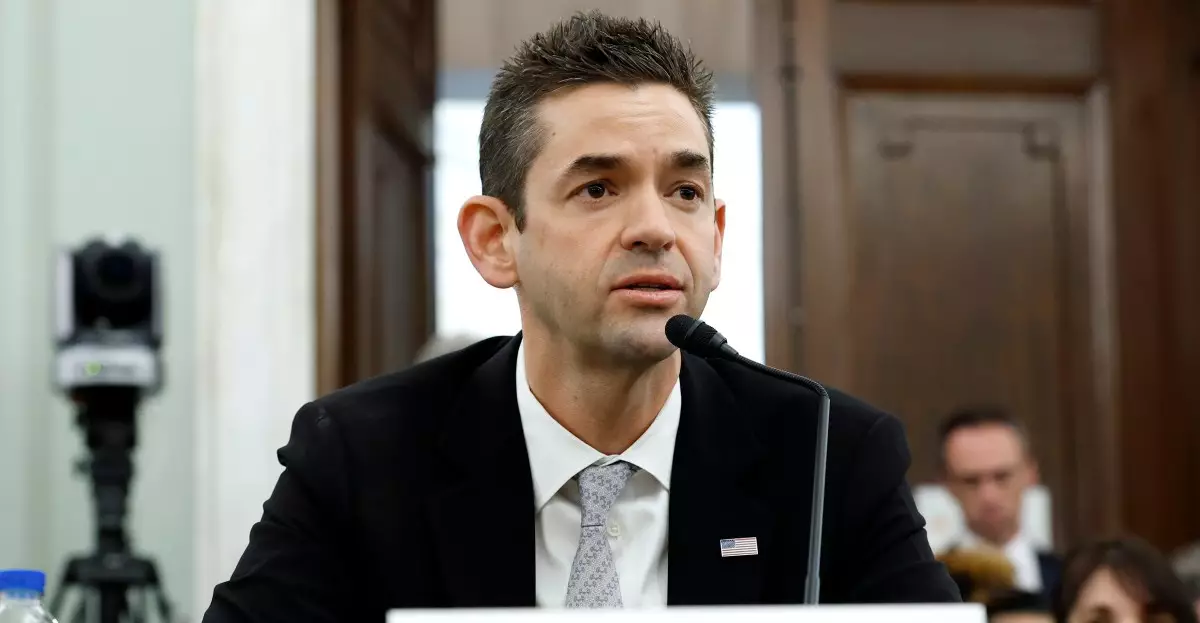The abrupt cancellation of Jared Isaacman’s nomination as NASA Administrator shines a glaring spotlight on the intricate relationships between politics, funding, and leadership in scientific institutions. Isaacman, a billionaire with deep ties to space exploration through his company Shift4 and his high-profile missions with SpaceX, seemed like a promising candidate for a role that could propel NASA into a new era. However, reports have surfaced that his earlier contributions to Democratic politicians—most notably Senator Mark Kelly of Arizona—prompted the Trump administration to pull his nomination almost immediately. This move raises essential questions about the politicization of scientific organizations and the implications for their future leadership.
Trump’s America First Agenda
The rationale behind Isaacman’s nomination withdrawal is rooted in the need for NASA’s next leader to fully embrace President Trump’s “America First” agenda, as communicated by White House spokesperson Liz Huston. This mantra has been a pivotal theme of Trump’s administration, but it emerges as a dangerous precedent for an agency that has always thrived on bipartisan support. Science should be apolitical; however, the recent decision illustrates how political affiliations can dictate the future of crucial governmental agencies, compromising NASA’s scientific mission and leadership integrity.
Imminent Budget Cuts and Implications for NASA
To compound the issues surrounding Isaacman’s nomination, the White House has also released a stark budget proposal indicating a nearly 25% funding cut for NASA, suggesting that allocations will plummet from $24.8 billion to $18.8 billion by 2026. Programs focused on scientific research would experience devastating reductions—up to 47%. The Planetary Society, an advocate for space exploration, has already labeled these budget proposals an “extinction-level event” for vital scientific initiatives. This is deeply concerning, as it not only undermines established research and exploration efforts but also affects the future of human knowledge in astrophysics, planetary sciences, and beyond.
A Call to Action for Accountability
With NASA operating under such precarious conditions, the disarray surrounding leadership nominations must be addressed. Commentators from within the scientific and political communities argue for a system that protects NASA from the whims of administration changes. The agency’s effectiveness relies on its ability to sustain forward momentum in space exploration and research rather than becoming a political pawn. This situation serves as a clarion call for all stakeholders—scientists, policymakers, and citizens—to demand accountability and clarity in how crucial appointments and funding decisions are made.
Future of Space Exploration Uncertain
The turbulent landscape presented by Isaacman’s cancellation and drastic budget cuts raises concerns about the future of NASA and the broader implications for space exploration in America. As we watch the dynamics unfold, it becomes increasingly clear that this isn’t just about one individual’s nomination; it reflects a fundamental struggle between scientific integrity and political influence. The consequence of sidelining expertise in favor of partisan alignments could stifle innovation and mute progress, leaving the future of space exploration uncertain and vulnerable. In the annals of space history, it may be said that we had the vision but failed to use it effectively.

